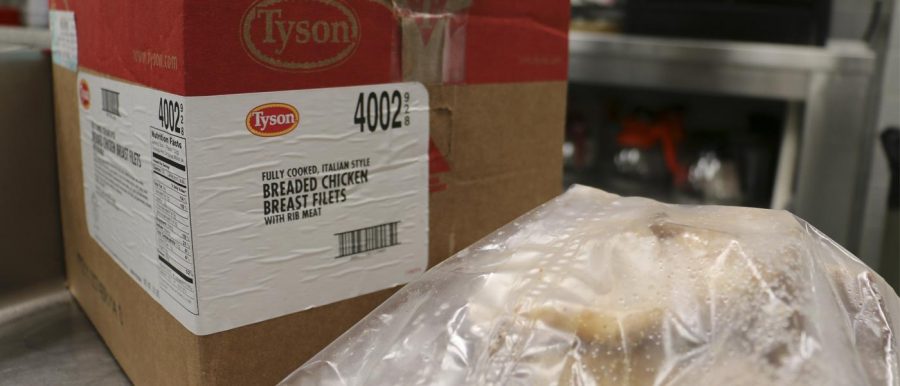It’s time for breakfast. You grab a plate and begin piling it with sizzling sausages and as many slices of crispy, fresh-off-the-griddle bacon as you can. Now, is this meal a particularly healthy one? Probably not. But will it go so far as to cause cancer?
On Oct. 26, a research division of the World Health Organization—the United Nations public health arm—classified processed meat as carcinogenic to humans “based on sufficient evidence in humans that the consumption of processed meat causes colorectal cancer.” The study, conducted by 22 scientists from around the world, shows that consuming 50 grams or more of processed meats a day (the equivalent of two slices of bacon) increases the chance of developing colorectal cancer by 18 percent. Meanwhile, red meats (beef or pork) are now classified as “probably carcinogenic.”
According to BBC, processed meats (which include bacon, sausage, hot dogs and chicken nuggets) are meats that have been modified to either extend shelf life or change the taste. The main methods for processing meat are smoking, curing and adding salt or preservatives. The chemicals involved in processing as well as the carcinogenic chemicals formed from cooking meats at high temperatures are the ones causing the spike in increase of cancer risk.
Sophomore Maye McPhail, a self-proclaimed lover of processed meats, was slightly surprised but not completely shocked by these findings.
“I always knew hot dogs were not good for me,” McPhail said. “I didn’t know they could cause cancer though.”
McPhail estimates that she eats processed meats approximately three times a week, whether it be chicken nuggets from Chick-fil-A or a hot dog from Whole Foods. Despite the alarming discoveries brought to light by the WHO study, McPhail does not think her eating habits will change very much; however, she does believe that the food industry of the world will make adjustments.
“People will take this seriously right now, especially since the world is getting more health-conscious,” McPhail said. “The whole trend of the world is turning towards trying to make sure everything is responsibly made.”
The WHO study is something to consider for school cafeterias as well. However, Director of Food Services Torie Reynolds says that the issue of processed meats is not very pressing at Hockaday because of the high standards of meat purchased by the school.
“Our hot dogs do not have carcinogens. We get very high-quality hot dogs and bacon,” Reynolds said. “I don’t see us stopping serving those things because we don’t serve them that often and we give you other choices.”
The hot dogs served in the Hockaday cafeteria are from a company called Hebrew National that exclusively selects premium cuts from North American beef. All of Hebrew National’s hot dogs are kosher. The rest of the meat served at Hockaday—including bacon and sausage—comes from a company called Crystal Creek, which is locally sourced in Texas.
“The problem with hot dogs it what’s added to them, and that’s what makes them ‘bad,’” Reynolds said. “But we know what’s added to our hot dogs and it’s very minimal.”
Thus, as of now, Hockaday will not be adjusting the menu. According to Reynolds, public schools may be more affected by this study. Because public schools are regulated by the government, if the government decides to tighten food regulations, Reynolds believes that these schools would need to adjust.
Karen Jacobsen, Director of Food Services of Highland Park Independent School District, says that Highland Park ISD constantly monitors new research findings in order to ensure that schools are providing a variety of healthy choices for students. Jacobsen supports recommendations given by various cancer research institutions that recommend avoiding processed/red meats and eating lean proteins instead.
“We offer fruits and vegetables, whole grains, a variety of proteins, including poultry, beef, fish, legumes, nitrite-free cold cuts and vegetarian options,” Jacobsen said. “We continue to modify and increase our current selections on a regular basis.”
Thus, Highland Park ISD will continue to modify its menu in order to provide other sources of protein and many options.
Overall, Reynolds and Jacobsen both believe that studies such as this WHO study regarding carcinogenic meat will encourage people to make healthier choices and maintain balanced, moderate diets.
“In moderation, processed food is okay,” Reynolds said. “But food made from ingredients you know or make yourself is always better.”



















